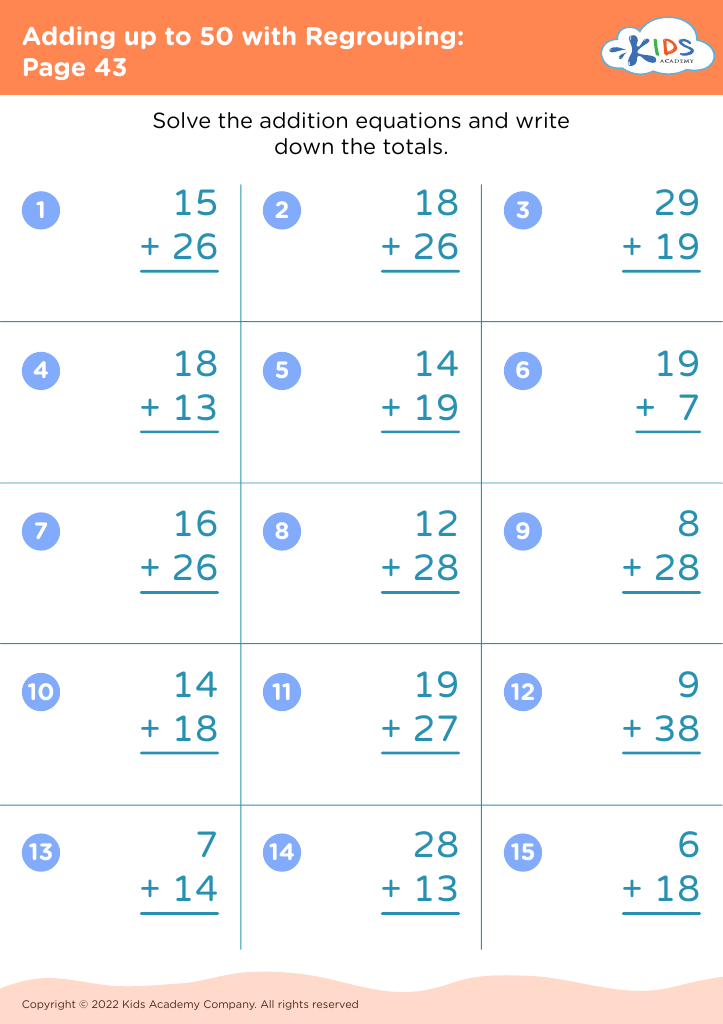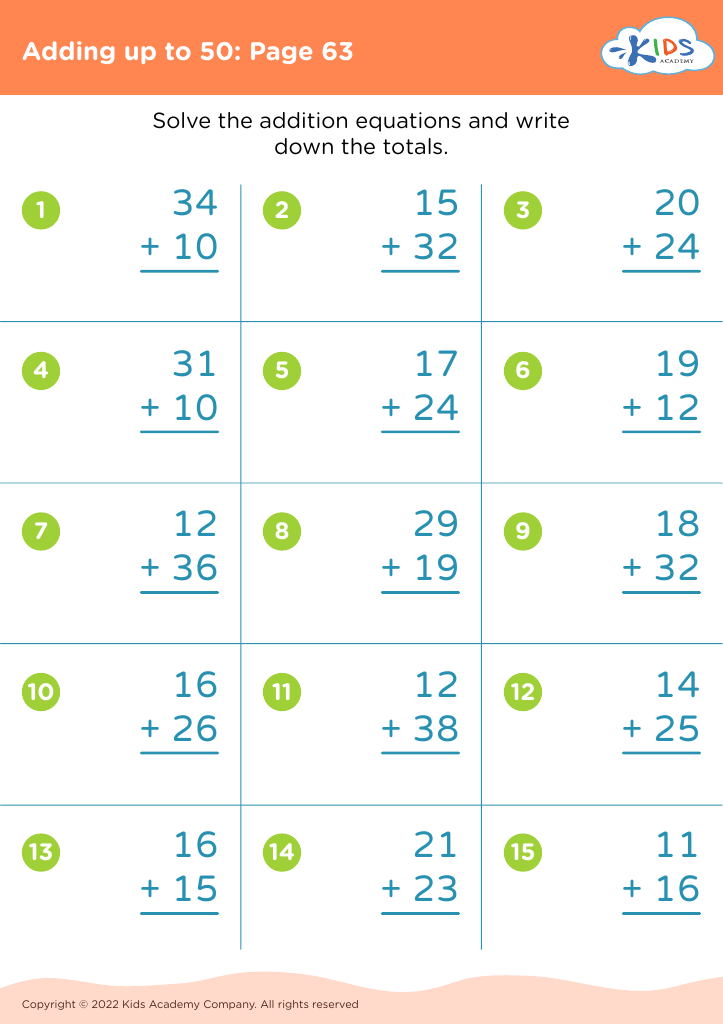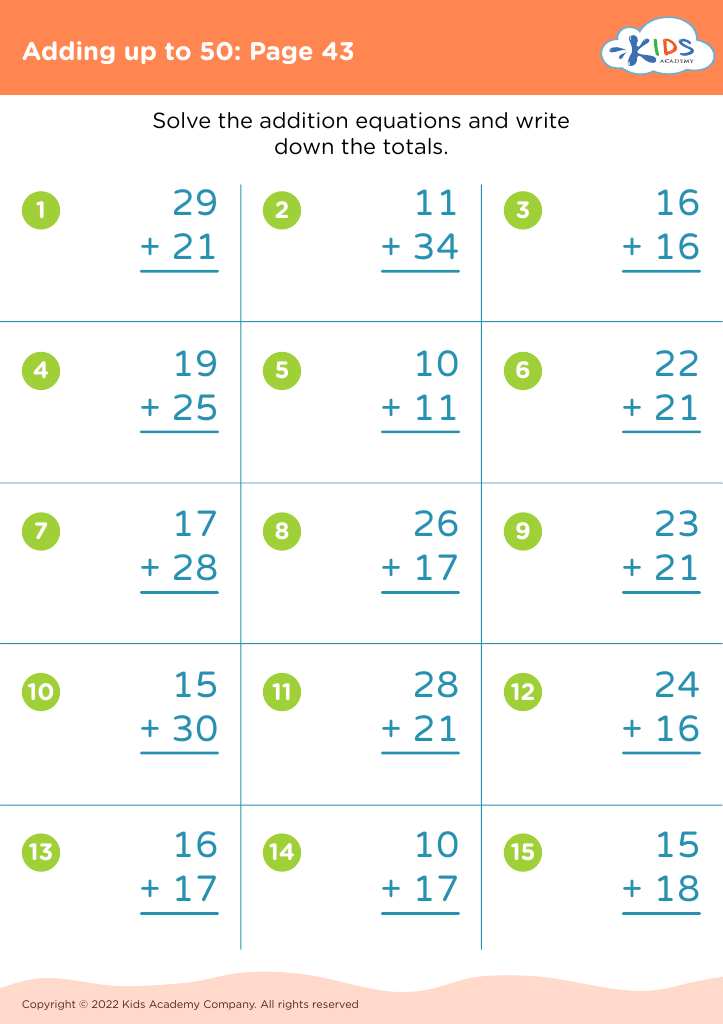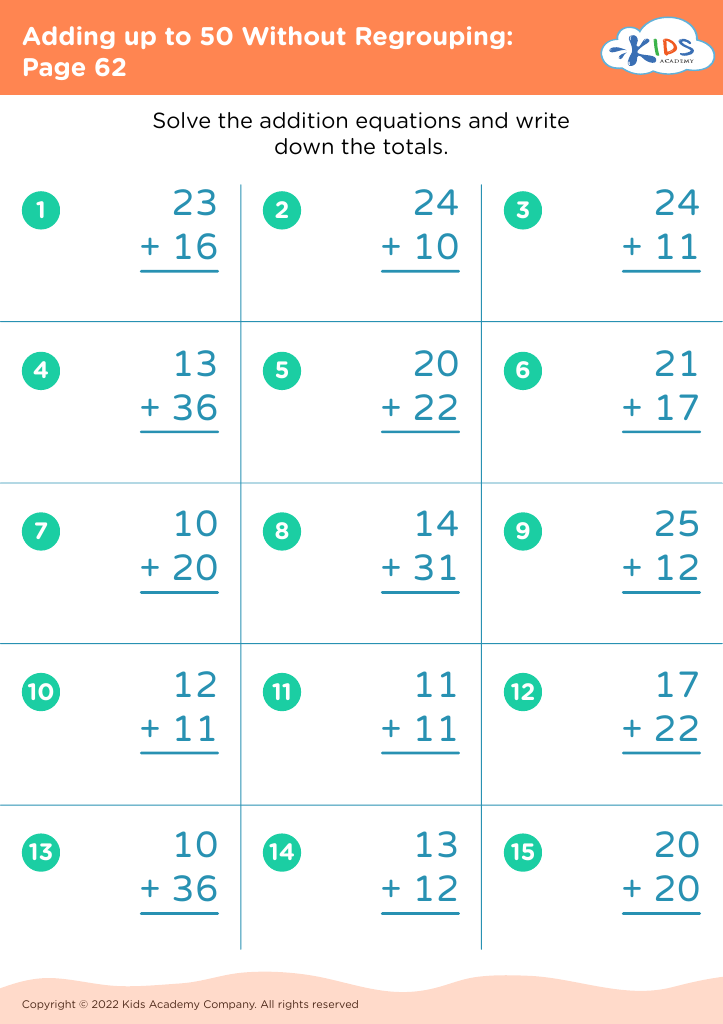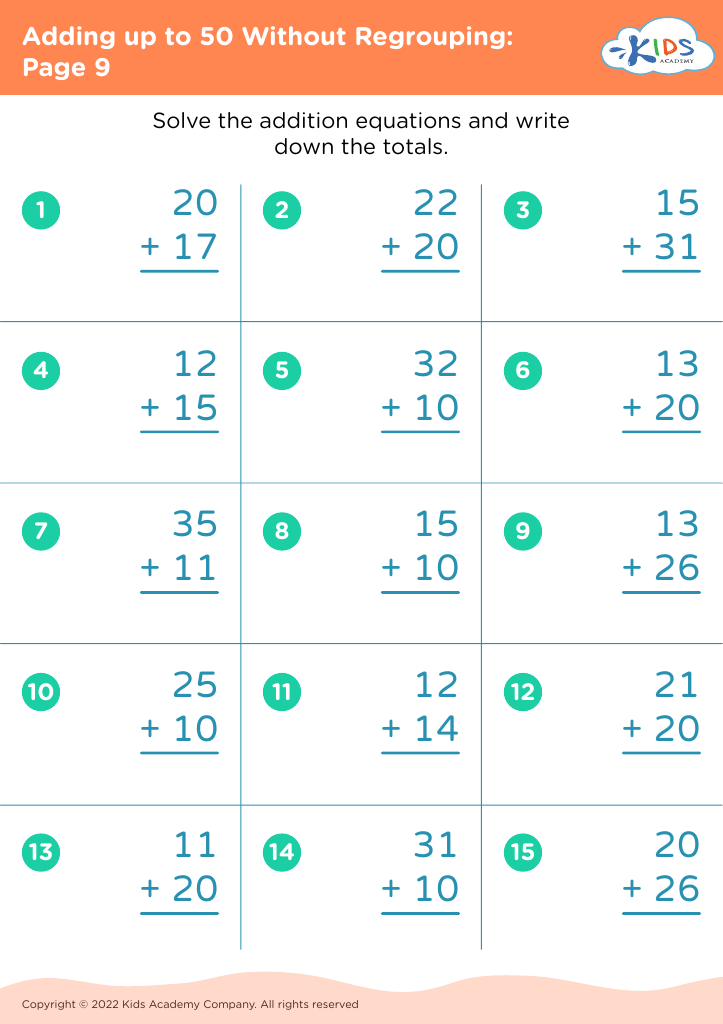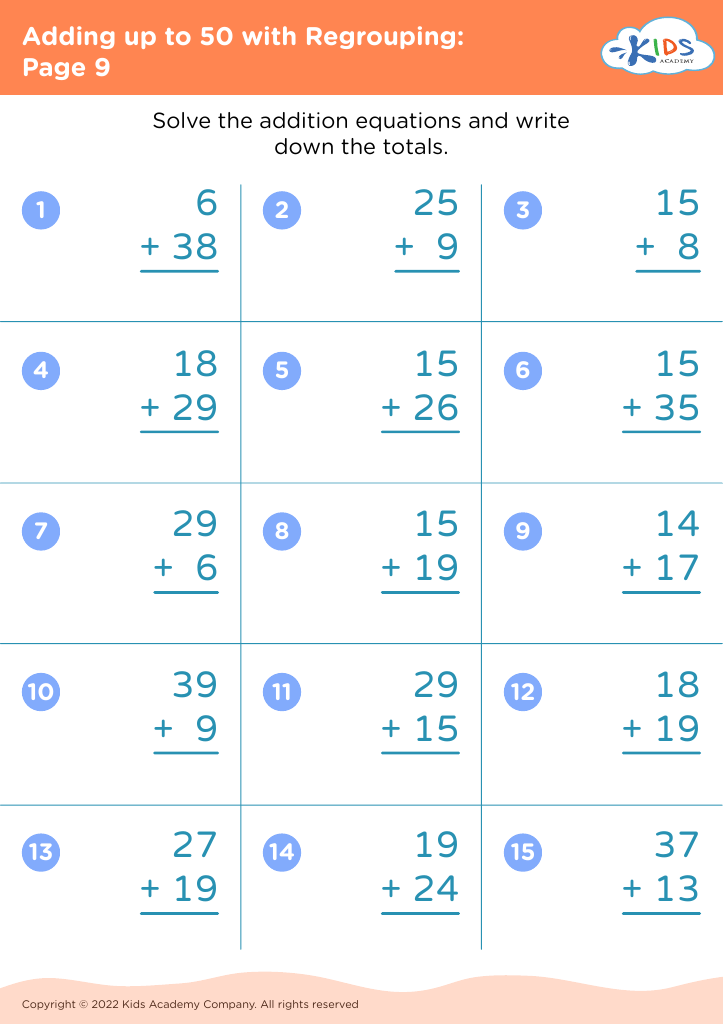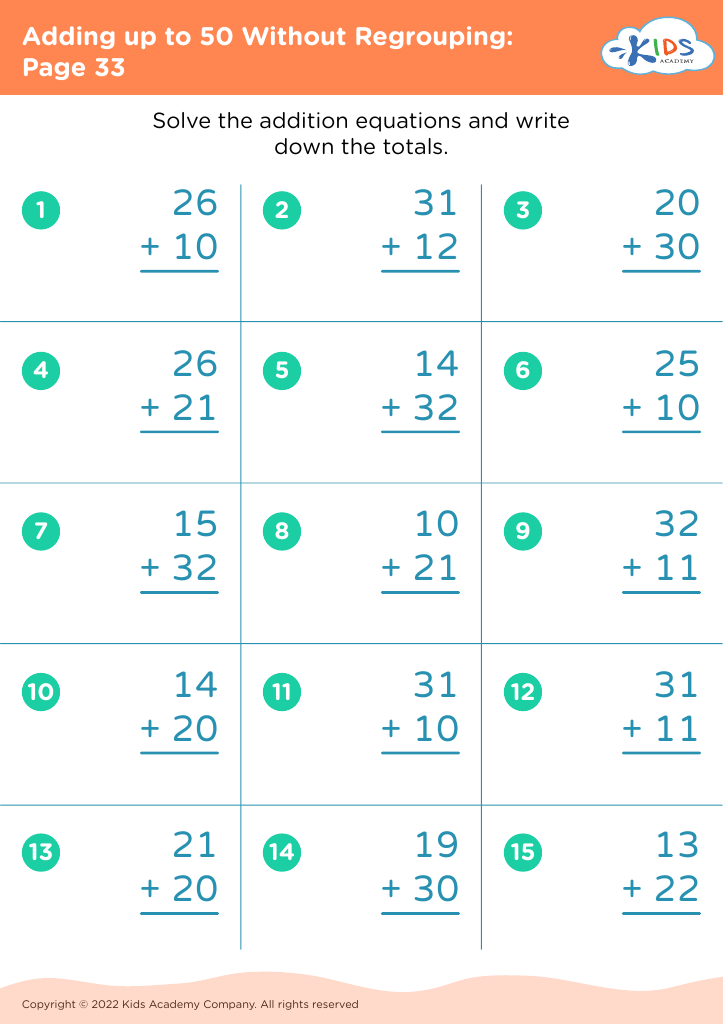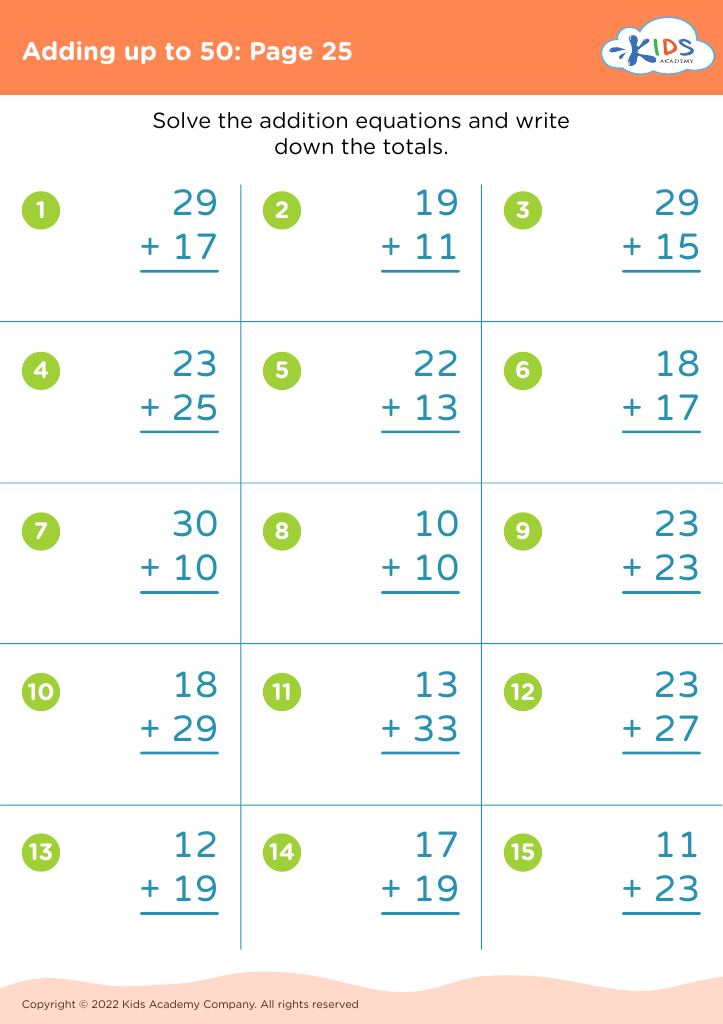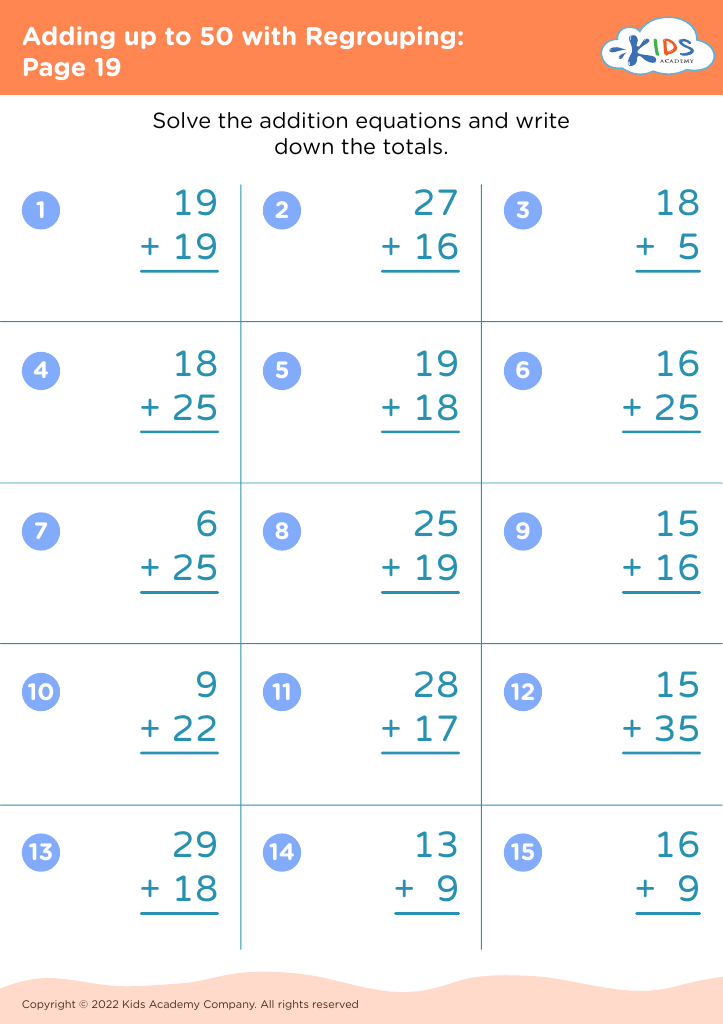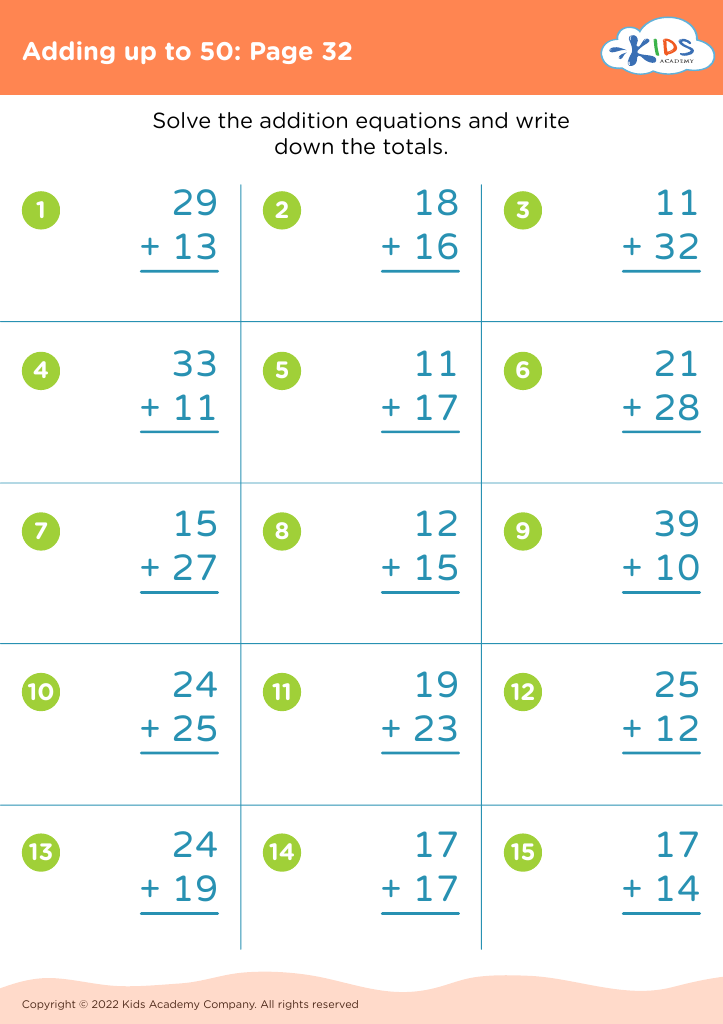Addition Practice Adding up to 50 Worksheets for Ages 3-8
16 filtered results
-
From - To
Explore our engaging "Addition Practice: Adding up to 50 Worksheets" designed for children ages 3-8! These fun and interactive worksheets provide a hands-on approach to learning basic addition skills, helping young learners build confidence in their math abilities. With a variety of colorful illustrations and practical exercises, children will enjoy mastering addition through exercises that are age-appropriate and stimulating. Each worksheet is crafted to enhance problem-solving skills while encouraging critical thinking. Ideal for both classroom settings and home practice, our resources ensure that mastering addition becomes an enjoyable and rewarding experience. Start your child's addition journey today!
Addition practice for children ages 3-8 is crucial for their cognitive development and foundational math skills. Developing a strong understanding of numbers and addition at an early age lays the groundwork for more complex mathematical concepts in the future. Children in this age group are naturally curious and learn best through engaging, interactive activities that build confidence.
Practicing addition up to 50 helps improve children’s number sense, making them more comfortable with basic arithmetic operations. It brings light to the relationships between numbers, enhancing critical thinking skills that go beyond math. Furthermore, fluency in addition encourages persistence and problem-solving abilities, beneficial in all areas of learning.
Parents and teachers can foster a positive learning environment by incorporating fun, age-appropriate games and hands-on activities that reinforce these skills. This not only aids in retention but also makes learning enjoyable. Moreover, helping children master addition allows them to progress at school and thrive in their academic journey. By engaging with addition practice, parents and teachers are actively supporting a child’s overall development, instilling essential skills that will prepare them for future educational challenges. Investing in early mathematical learning has lifelong benefits, nurturing responsible and informed citizens.


